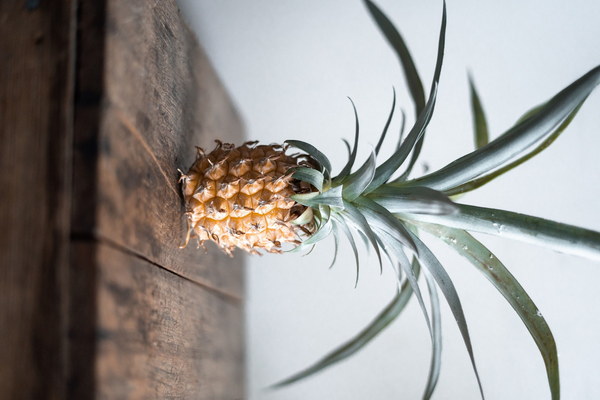Unleash the Power of Lotus Leaves A Natural Remedy for Dampness in Traditional Chinese Medicine
In the realm of traditional Chinese medicine, the use of natural herbs has been a cornerstone for promoting health and wellness for centuries. One such herb that has gained popularity in recent years is lotus leaves, known as ye he in Chinese. Packed with numerous health benefits, lotus leaves have been used to combat dampness, a common condition that plagues many individuals. This article delves into the wonders of lotus leaves and how they can help alleviate dampness.
Dampness, also known as shi in Chinese medicine, refers to a condition where excess dampness accumulates in the body, leading to discomfort and various health issues. Symptoms of dampness may include fatigue, joint pain, water retention, and even digestive problems. To counteract this, traditional Chinese medicine suggests the use of herbs that can expel dampness and restore balance to the body.
One such herb is lotus leaves, which have been used for centuries in Chinese cuisine and traditional medicine. The leaves are derived from the lotus plant, a symbol of purity and tranquility, and are known for their numerous health benefits. Here's how lotus leaves can help alleviate dampness and promote overall well-being:
1. Cooling properties: Lotus leaves have cooling properties that help reduce internal heat and dampness in the body. This makes them an excellent choice for those suffering from damp heat conditions, such as acne, boils, and skin rashes.
2. Promotes digestion: Dampness often leads to digestive issues, including bloating, constipation, and diarrhea. The natural astringent properties of lotus leaves help stimulate the digestive system, promoting regular bowel movements and alleviating discomfort.

3. Detoxification: Lotus leaves are known for their diuretic effects, which help the body eliminate excess fluids and toxins. This can be particularly beneficial for those who are prone to water retention or have kidney issues.
4. Anti-inflammatory: The anti-inflammatory properties of lotus leaves can help reduce joint pain and inflammation, making them an excellent remedy for those suffering from arthritis or other inflammatory conditions.
5. Enhances energy: By expelling dampness from the body, lotus leaves can help boost energy levels and alleviate fatigue. This makes them a great choice for individuals who feel rundown or have low energy levels.
To incorporate lotus leaves into your diet, there are several ways to enjoy their benefits. Here are a few suggestions:
1. Lotus Leaf Tea: Boil a few lotus leaves in water and let it steep for several minutes. This tea can be enjoyed hot or cold and is a refreshing way to combat dampness.
2. Lotus Leaf Soup: Add fresh or dried lotus leaves to your soups, stews, or porridge to enhance their flavor and health benefits.
3. Lotus Leaf Salad: Toss fresh lotus leaves with your favorite salad ingredients for a unique and nutritious dish.
4. Lotus Leaf Tea with Other Herbs: Combine lotus leaves with other traditional Chinese herbs, such as ginger or licorice, to create a synergistic blend that targets dampness more effectively.
In conclusion, lotus leaves are a natural and effective remedy for dampness in traditional Chinese medicine. With their cooling properties, digestive benefits, and anti-inflammatory effects, these leaves can help restore balance to the body and promote overall well-being. Incorporating lotus leaves into your diet is an easy and delicious way to combat dampness and enjoy the numerous health benefits they offer.









